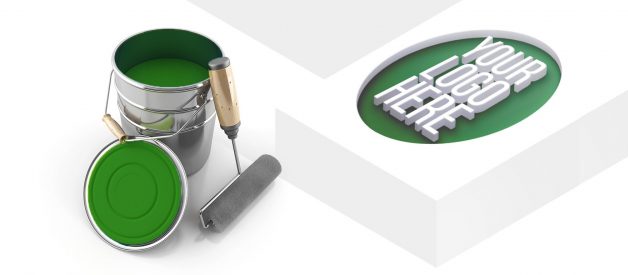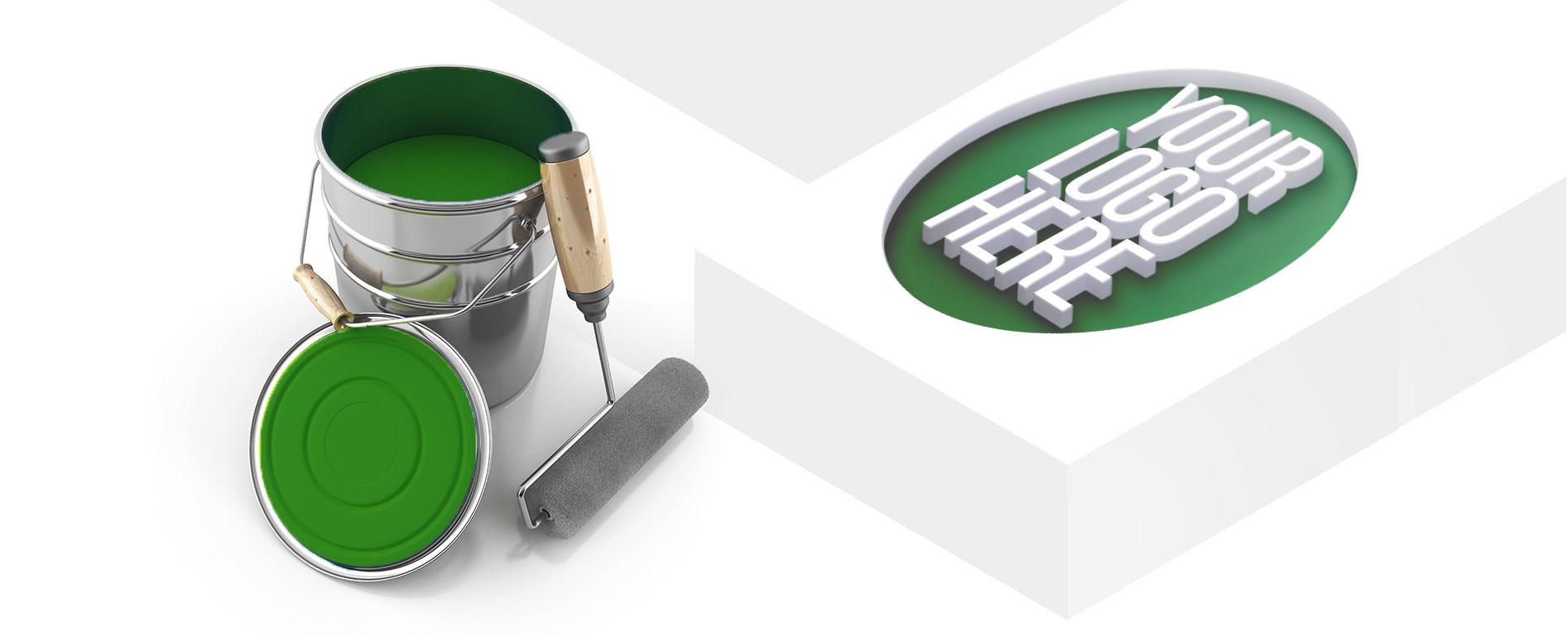
Over recent years, this wonderful thing has happened in the business world where more and more companies specialize in creating products or services that other people (or resellers) can then resell to the end consumer.
Certain business models make it so that entrepreneurs don?t have to take on the world all by themselves. Introducing white-label and private label business models. In this article we are going to explore the difference between these two business models, some of their history, as well as some business opportunities that they present.
What is Private Label?
Private label is a business model where a manufacturer of physical goods sells unbranded products to resellers who rebrand the products and sell them to end consumers. This manufacturer-reseller model is effective because it allows both the manufacturer and the reseller to specialize and avoid the costs of owning the entire value chain.
I am going to commit a cardinal sin and cite a Wikipedia definition. (Sorry all past professors/teachers/educators)
?Private-label products or services, also known as ?phantom brands?, are typically those manufactured or provided by one company for offer under another company?s brand.? ? Wikipedia
The History of Private Label Brands

Private labeling has been a major factor in the fashion industry over the years. It?s a common practice where retailers create their own brands with similar styles of clothing at a competitive price point (usually to offer a similar style of shirt or dress, but for a much cheaper cost). The image below on the left is a Versace dress that retailed for $1,685, while Neimen Marcus offered a similar style for $130. While not exactly the same garment, you get my point.
Private Label Examples
Due to the private label business model, most of the most successful manufacturers in this space are not well known or recognizable to consumers. The resellers of these products instead get all of the brand recognition.
Here is a list of the products that you will see the most often in a private label capacity:
- Personal Care
- Cosmetics
- Beverages
- Paper Products
- Salad Dressings and Condiments
- Cleaning Products
- Frozen Foods, etc.
Did you notice a trend here?
Key Characteristics of Private Label Companies Include:
- Private labeling is generally bound to a market of physical products. If there?s something that you can hold in your hand, and you can slap your brand on it for reselling, then that?s a private label product.
- Private labeling can also deal with large amounts of customization. When a reseller is purchasing a product from a private label manufacturer, quite often these manufacturers will customize the product or build an entirely unique product for certain resellers. What this means is that one private label manufacturer might make very different products for two different resellers or brands.
Private Label Company: Dollar Shave Club
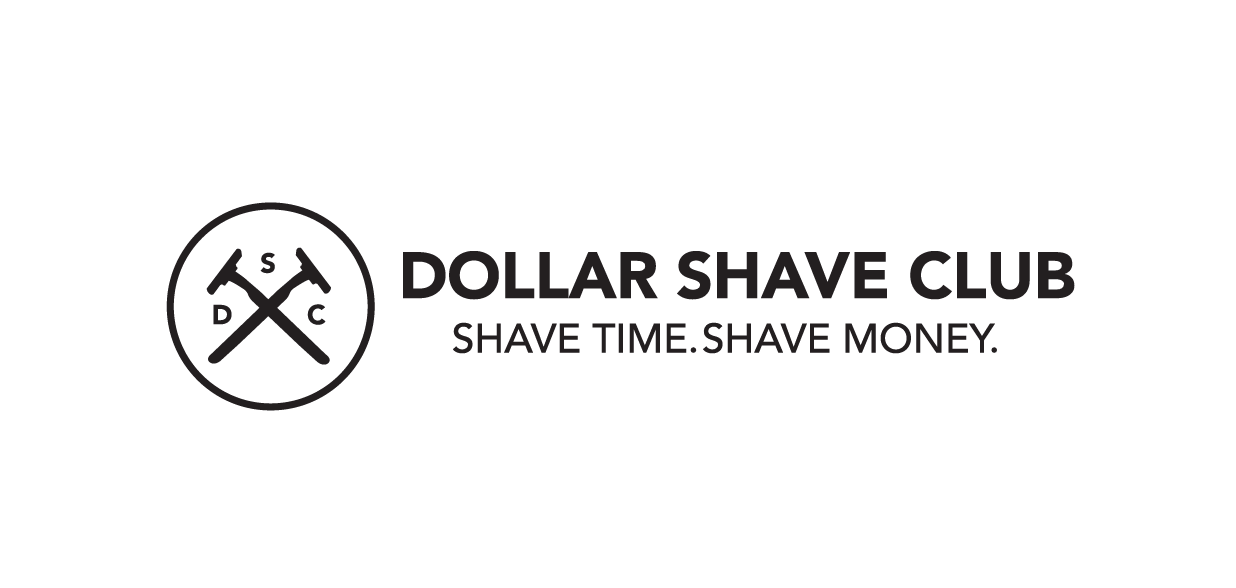
For example, the Dollar Shave Club is a company that delivers razors and other grooming supplies, but does not produce any of its own razors. Instead, they purchase their razors from a private-label manufacturer, then place their own branding on it. This differs from other companies and competitors like Schick that instead manufacture and sell their own product, rather than just the latter.
What is White-Label?
White-label is another business model where a software manufacturer sells an unbranded piece of software to a reseller who then places branding on it. Similar to private label, white-label companies are ?secretly? rebranding and reselling items that were created by a separate provider.
My colleague Zach illustrated this concept in the video below:
Want another Wikipedia definition, just to be sure?
?A white-label product is a product or service produced by one company (the producer) that other companies (the marketers) rebrand to make it appear as if they had made it.? ? Wikipedia
As Zach demonstrated, the white-label reselling process looks something like this:
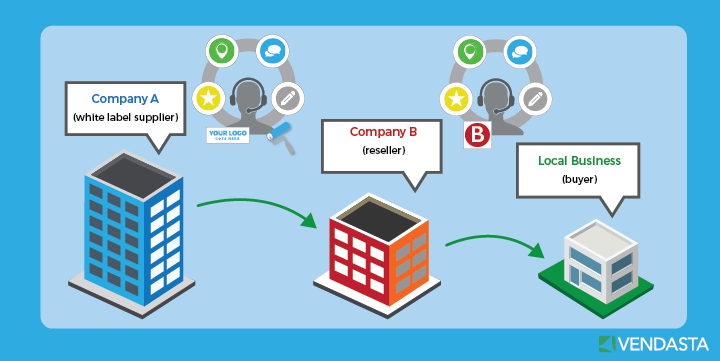
The History of White-Label Brands
Back in the stone ages, before records were released to the general public, the final album artwork was not yet designed and printed, so promotional copies were sent to DJs in a white sleeve. DJs would then drop these beats at the radio station or nightclub to gauge interest and better estimate how many records to make.

As was mentioned above, it is key to recognize that this origin also involves an identical product being ?white-labeled?.
White-Label Examples
As we now know, white-label companies predominantly exist in the software and technology fields. Some popular white-label manufacturers (or as famous as you can be without having virtually any B2C brand) would include:
- BuildFire (for mobile apps)
- SEOReseller (for SEO, duh)
- Vendasta (hey, that?s us!)
Key Characteristics of White-Label Companies Include:
- ?White-label? is essentially the tech industry?s adaptation of private labeling. Where private label products might exist in industries such as fashion or other physical goods, white-labeling predominantly exists with rebrandable technological products and solutions.
- White-label products also tend to be much less customizable than their private label peers.If we revisit our razor example, the private label manufacturer likely makes other unique razors that they sell to other companies.
For some context, if we take a white-label software producer, it?s pretty safe to assume that the software being produced is not customized for any of the purchasers, but that purchasers are instead competing with the exact same software. This is because software production is inherently accompanied by high capital investment and overhead costs, whereas the production of plastic razors requires much less capital investment in comparison.
White-Label Company: Vendasta

At Vendasta, we are a white-label producer of marketing automation software. We sell our unbranded, in-house products and services to marketing agencies and media groups around the world who can resell our software to local business clients, under their own brand. These local businesses are all using the identical software (customized with reseller branding), but they are consuming it through different resellers.
Explore our white-label platform!
Similarities & Differences Between White-Label and Private Label
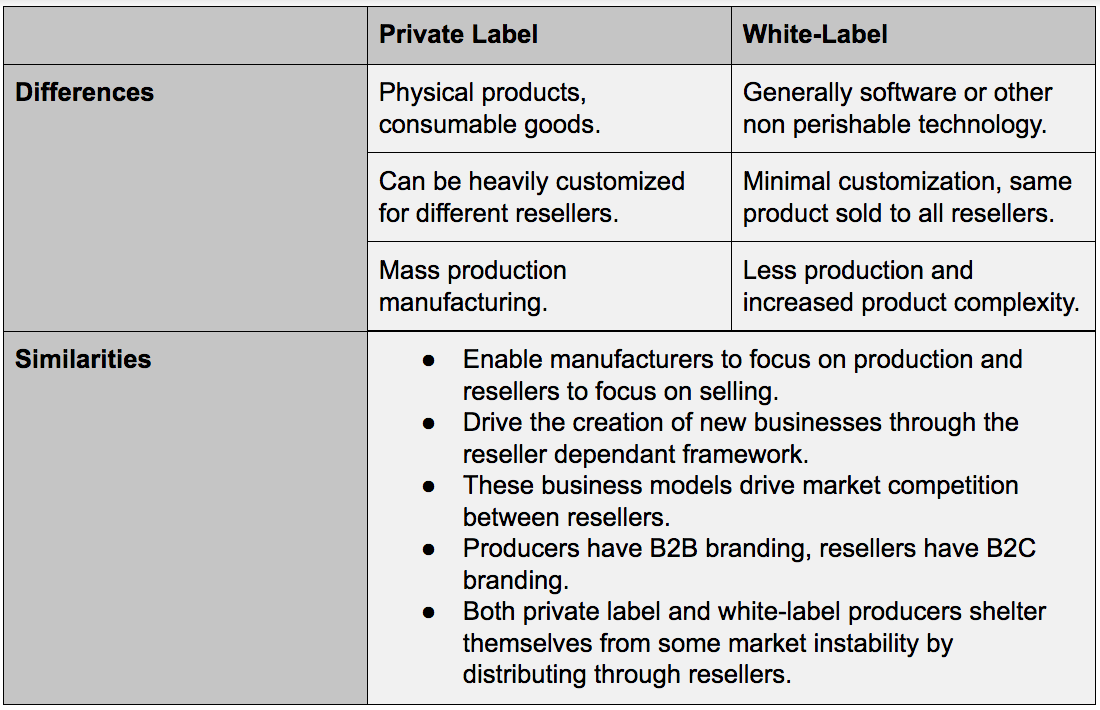
Opportunities for Resellers
Both white-label and private label business models offer a pristine opportunity for businesses and entrepreneurs that are looking to diversify their current offerings, penetrate new markets, or simply supplement existing revenue streams.
However, white-label software and service opportunities will ultimately be easier to leverage, as there is no physical rebranding or built-in distribution network necessary to sell and fulfill product orders.
Let?s take a closer look.
Private Label Business Opportunities
For entrepreneurs, there are tons of great products and great producers out there to get you started in the sale of goods.
Here is your workflow: determine a product or product category, find a suitable private label manufacturer, create and build a brand, and sell your selected private label product under your brand.

For established businesses, private labeling can equate more diversified revenue streams. Consider our dress example once again. The Versace dress is sold at a price point that would only appeal to a smaller, upper class demographic. By targeting this demographic, Versace might have great success with market penetration, but fail to sell any dresses to a larger middle or lower class demographic.
However, if a brand like this were able to use another brand under the same corporate ownership to sell a ?knock-off? or ?less extravagant? version of the dress, Versace would be able to penetrate two entirely different markets with nearly the same product. The best way to do this would be to recruit a private label manufacturer that would be able to produce larger quantities of the desired product at the desired price point.
White-Label Business Opportunities
For entrepreneurs, most white-label tech companies (or at least the good ones) have free pricing tiers so that you can try the product and get on your feet before you have to pay for your usage. This means there are boundless opportunities for entrepreneurs that are interested in getting into the tech space.
Here are some opportunities that might be of interest in 2019:
- White-label content creation. You can easily use sites like ProBlogger to outsource writing to eager freelancers, and sell it with a margin as if it were your own.
- SEO auditing, reporting, etc. All the craze over the past few years has been surrounding the art of mastering search engine optimization. There are tons of sites out there that will perform white-label audits or reporting that you can then white-label to you clients.
- White-label agency. What if you want to do it all? Companies like us at Vendasta enable our resellers to literally become a full service marketing agency at the click of a button.
Browse solutions for white-label agencies!
For established businesses, leveraging white-label providers can prove to be a highly effective way to introduce new offerings at a low cost, and skip the overhead that would normally be associated with R&D and extensive product development.
Recommended Reading: Unleashing the Competitor Killer: Product Diversity
Let?s take one of our favorite verticals at Vendasta as an example ? TV companies. Television companies sell television ads, as one might assume. They are really good at selling these ads, but the reality is that digital ads are beating out TV. See below:
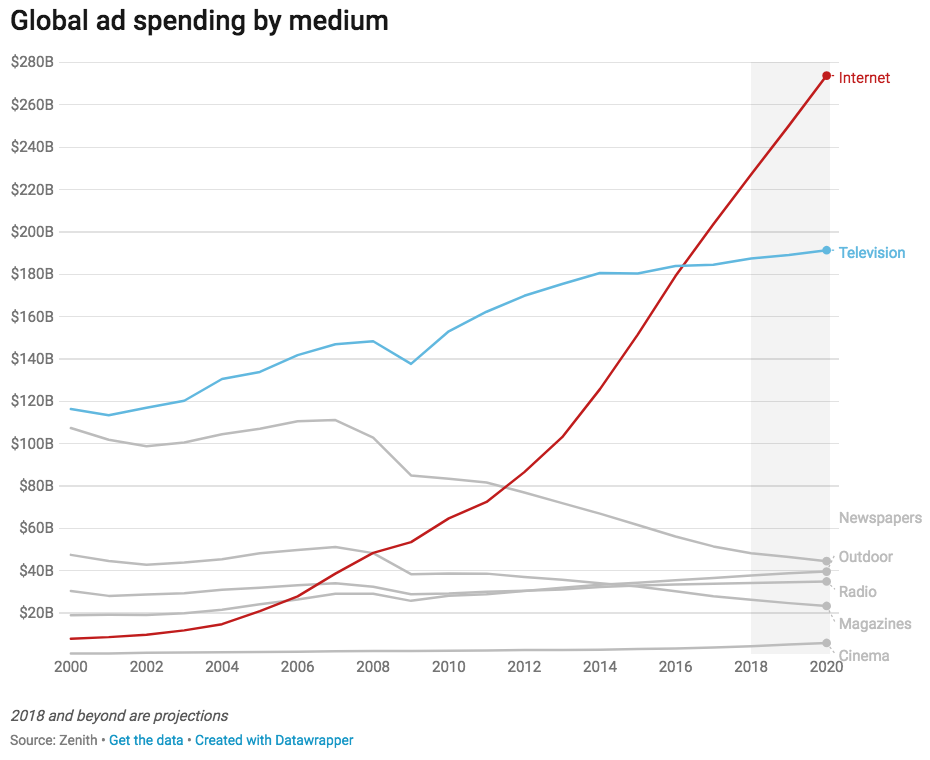
But why couldn?t these TV companies offer their clientele digital ad services as well? With white-label providers, they can ? all under their existing branding.
With a white-label provider, the TV company would be able to bundle their traditional TV advertising spots with other digital media like display advertising, social media management, websites, and more. That way, they can increase their revenue in other channels without cannibalizing their TV ad revenue.
In the TV space? Check out solutions for you.
? ? ? ? ? ? ? ? ? ? ? ? ? ? ? ? ? ? ? ? ? ? ? ? ? ? ? ? ? ? ?
Head over to the Vendasta Blog to see the rest of this article and explore white-label business opportunities with Vendasta!
White-Label vs Private Label
